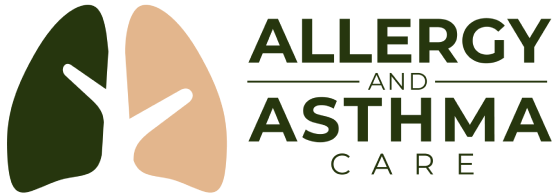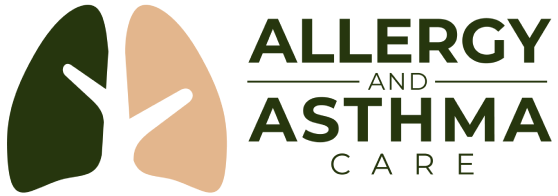Allergic rhinitis is a reaction of the lining of the nose to particles in the air. It occurs when the nose and usually also the ears, eyes, sinuses, and throat come into contact with allergy-causing substances. The allergy-causing substances are called allergens. The most common allergens are pollen, molds, dust mites, and animal dander. Some allergens are present mostly during certain seasons, for example, ragweed in the fall, trees in the spring and grasses in the summer. The allergic reaction they cause is called seasonal allergic rhinitis or hay fever. Other allergens are present year-round, such as pets, the mites in house dust and molds in Florida. These allergens cause a type of rhinitis called perennial (year round) allergic rhinitis.
When the lining tissues of the nose and sinuses come into contact with allergens, a chemical called histamine is released from cells in the nose. Histamine causes the nose lining to swell, itch, and make too much mucus.
Common symptoms of allergic rhinitis include:
- itchy, runny nose
- sneezing
- nasal and head congestion
Other possible symptoms include:
- fatigue and lethargy
- itchy throat
- postnasal drainage and sinus congestion
- itchy, red, watery eyes
How is it diagnosed?
At Allergy and Asthma Care, we will ask about your symptoms, medical history, and family history. It may take some detective work to figure out exactly what you are allergic to. You may have tests for specific allergies. For most people the best tests are skin scratch or prick tests. For these tests the nurse places tiny amounts of suspected allergens under your skin and looks for reactions. These allergy tests will identify which of many possible allergens are causing your symptoms. In patients taking medications that they cannot stop as antihistamines and certain antidepressants or with chronic skin conditions may have blood tests to look for antibodies to suspected allergens.
If medicines do not control your symptoms, or you do not want to take medications you should have allergy tests.
How is it treated?
Once we know what you or your child are allergic to, we will recommend environmental control and medicines if needed. If your symptoms are severe in spite of medicines, you may be suggested to start allergy shots. A mixture is prepared that contains the allergens identified in your allergy tests. The mixture is injected into your skin in tiny but increasing amounts over the course of many months. Over time, the shots make you or your child (over 5 years old) less sensitive to the allergens. Usually after 4 to 6 months of allergy shots you will begin to have relief from your allergies. However, you will probably need to continue the shots for 3 to 5 years or longer.
Proper treatment of allergy symptoms is the best way to prevent complications of allergic rhinitis, such as ear and sinus infections and asthma. If you have had allergies since you were a child, you will probably have them the rest of your life. New allergies can develop any time, even if you have not had allergies before. Allergy symptoms depend not only on the season and weather but also on location. This means your allergies may wax and wane, depending on where you are living.
There are no known ways to prevent the development of allergic rhinitis. Once allergies have developed, you can try to limit exposure to the things that cause them, for example, dust, molds or animals. In severe cases, you may need to move to another area, but you may develop allergies there as well.


